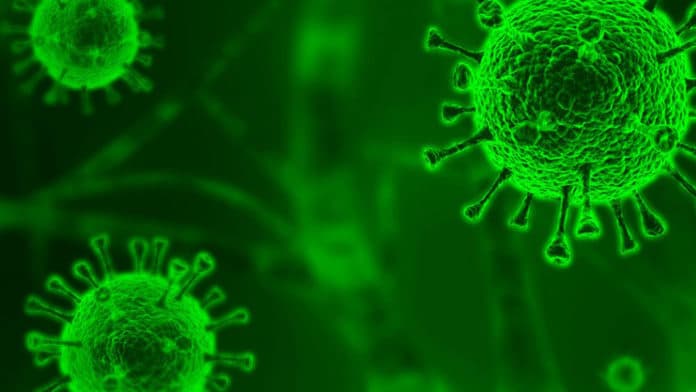In 2021, more than 4.6 million death cases due to Covid-19 have been reported worldwide. A previous study has suggested that a stretch of DNA on chromosome 3 double the risk of death from COVID-19.
Although, it remains elusive how this genetic signal increases the risk nor the exact genetic change that was responsible.
Using advanced technology, scientists from Oxford University have identified the gene responsible for doubling the risk of respiratory failure from COVID-19.
They found that the increased risk is not because of a difference in the gene coding for a protein but because of a difference in the DNA that makes a switch to turn a gene on.
Scientists used an AI algorithm to analyze huge quantities of genetic data from hundreds of types of cells from all parts of the body. They found that the genetic signal is likely to affect cells in the lung.
Later, by using the highly accurate technique, they could zoom on the DNA at the genetic signal. They were surprised to know that the billions of DNA letters fold up to fit inside a cell to pinpoint the specific gene controlled by the sequence causing the greater risk of developing severe COVID-19.
Dr. Damien Downes, who led the laboratory work from the Hughes research group, said: “Surprisingly, as several other genes were suspected, the data showed that a relatively unstudied gene called LZTFL1 causes the effect.”
Higher risk version of the LZTFL1 gene obstructs the cells lining the airways and the lungs from responding to the virus appropriately. But, it doesn’t affect the immune system.
Scientists expect people carrying this version of the gene to respond normally to vaccines.
Study co-lead Professor James Davies, who worked as an NHS Consultant in Intensive Care Medicine during the pandemic and is an Associate Professor of Genomics at Oxford University’s Radcliffe Department of Medicine, said: “The genetic factor we have found explains why some people get very seriously ill after coronavirus infection. It shows that how the lung responds to the infection is critical. This is important because most treatments have focussed on changing how the immune system reacts to the virus.”
Scientists reported, “Sixty percent of people with South Asian ancestry carried this higher-risk version of the gene compared to 15 percent of those with European ancestry – explaining in part the higher death rates and hospitalizations in the former group.”
It was also found that 2 percent of people with Afro-Caribbean ancestry carried the higher risk genotype. It means this genetic factor does not completely explain the higher death rates reported for black and minority ethnic communities.
Professor Davies explained: “The higher risk DNA code is found more commonly in some black and minority ethnic communities but not in others. Socioeconomic factors are also likely to be important in explaining why some communities have been particularly badly affected by the COVID-19 pandemic.”
“Although we cannot change our genetics, our results show that the people with the higher risk gene are likely to particularly benefit from vaccination. Since the genetic signal affects the lung rather than the immune system, it means that the increased risk should be canceled out by the vaccine.”
Journal Reference:
- Downes, D.J., Cross, A.R., Hua, P., et al. Identification of LZTFL1 as a candidate effector gene at a COVID-19 risk locus. Nat Genet (2021). DOI: 10.1038/s41588-021-00955-3
